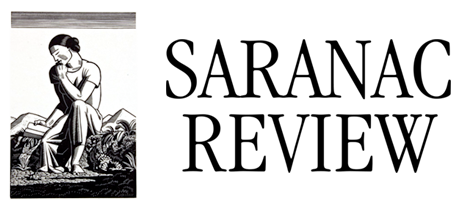I am a Soft Animal: On Mary Oliver
Whoever you are, no matter how lonely,
the world offers itself to your imagination,
calls to you like the wild geese, harsh and exciting–
over and over announcing your place
in the family of things.
—Mary Oliver, “Wild Geese”
Days after poet Mary Oliver’s death in January of 2019, my high school art teacher printed off an inch thick stack of her poem “Wild Geese” for students to take from if they so pleased. I was a sixteen-year-old junior, and having just been released from AP English where we had been dissecting a sonnet for forty-five minutes, I was understandably wary. I did not want to read another poem that I would probably hate—especially not one that a teacher recommended.
In the humdrum of my teacher instructing us on which art project to continue or begin, I hesitated. Stools screeched against tile and my peers trudged this way and that, and all I could do was look at the stack of poems, undisturbed on an unoccupied desk at the back of the classroom. I had been having a rough mental health week. I hadn’t showered that morning (and probably not the morning before that, either). My clothes itched, my hair was greasy, everything hurt—I was physically and emotionally worn out. And the stack. It was like it was looking at me, or through me, or into me.
I hopped off of my stool just as everyone else returned to their own, sauntered over to the stack much more confidently than I felt, and plucked one sheet off the top. It felt as small and delicate as a flower petal in my hands. I took great care to treat it gently. The poem begins: You do not have to be good. You do not have to walk on your knees / for a hundred miles through the desert repenting. / You only have to let the soft animal of your body / love what it loves. My face crumpled and I burst into hot tears of relief before finishing the second line. These tears kept flowing all the way to the end of the poem and continued for many minutes afterward. Every other student except one or two gave me mortified looks, as if to say, Oh, she’s crying again. My wonderful, compassionate teacher caught my eye and said something like, “It’s good, isn’t it?” in a fatherly voice and I nodded, unable to speak. I took that slip of paper and tucked it lovingly into a folder. Later that night, I slid it out and instead tucked it into the front of my journal to be reread over and over and over again.
Mary Oliver was known to be a sort of recluse, taking refuge in her tranquil walks through the deep forest, her notepad a steady presence in her hand. She was born into a difficult home in Cleveland, Ohio, where she would endure sexual abuse from her father. As a girl, her only escape was reading poetry in the forest—a tradition she kept up for the rest of her life. Only now she was doing poetry writing herself. In Maria Shriver’s 2011 interview, Oliver revealed that she surprised herself by writing the poems in Dream Work (1986), the collection in which “Wild Geese” first appeared, because of their intimate roots: “Because I was always very private about my life, and yet the poems in Dream Work are not so private as I thought. I’m glad I wrote them, and I’m doing a little more of that now—using personal material.” Knowing this, I like to think that “Wild Geese” stemmed from some secret organ within Mary Oliver, revealing something tangible about her and her life that we may never get to know. That, in part, is what is so enchanting. As a teenager, it restored something like profound hope within me, but for her, it may have meant something completely different and wholly unique. I wish to know what that was.
All that time ago, “Wild Geese” beckoned teenage-me to listen. For the first time in my life, it felt like I was being understood. But also, weirdly, it reminded me that I was just a fleshy girl and the world is big and mean but so very beautiful, and that I didn’t have to be so scared of it. It was exactly what I needed. No one else took a poem that day in art class. Now, I share it with everyone I get the chance to, hoping that someday, sometime, someone will feel the tender balm Mary Oliver has offered us, even after her death.
The year is 2024. I sit at my dorm desk caressing the roughly chopped edges of that same slip of paper, smoothed over like sea glass, before sliding it back into its home at the front of my newest journal. Tears well in my eyes. Tell me about despair, yours, and I will tell you mine.

